
 |
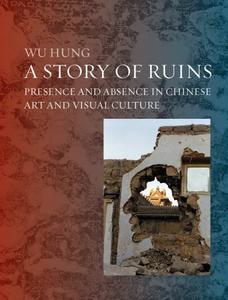 Wu Hung, "A Story of Ruins: Presence and Absence in Chinese Art and Visual Culture" English | 2012 | pages: 296 | ISBN: 069115502X, 1861898762 | PDF | 6,2 mb This richly illustrated book examines the changing significance of ruins as vehicles for cultural memory in Chinese art and visual culture from ancient times to the present. Leading scholar of Chinese art Wu Hung shows how the story of ruins in China is different from but connected to "ruin culture" in the West. He investigates indigenous Chinese concepts of ruins and their visual manifestations, as well as the complex historical interactions between China and the West since the eighteenth century. 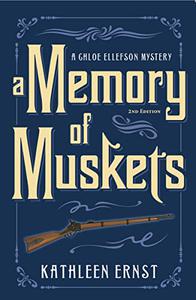 Kathleen Ernst, "A Memory of Muskets" English | 2016 | ISBN: 0738745154, 1410495213, 1595988378 | EPUB | pages: 408 | 0.8 mb Curator Chloe Ellefson is happily planning to spotlight home-front challenges and German immigrants at Old World Wisconsin's first Civil War reenactment, but her overbearing boss scorns her ideas and proposes staging a mock battle instead. And when a reenactor is found dead at one of the historic site's German farms, Chloe's boyfriend, cop Roelke McKenna, suspects murder. 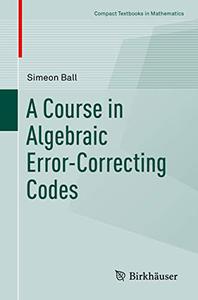 Simeon Ball, "A Course in Algebraic Error-Correcting Codes" English | 2020 | pages: 185 | ISBN: 3030411540 | PDF | 1,9 mb This textbook provides a rigorous mathematical perspective on error-correcting codes, starting with the basics and progressing through to the state-of-the-art. Algebraic, combinatorial, and geometric approaches to coding theory are adopted with the aim of highlighting how coding can have an important real-world impact. Because it carefully balances both theory and applications, this book will be an indispensable resource for readers seeking a timely treatment of error-correcting codes. 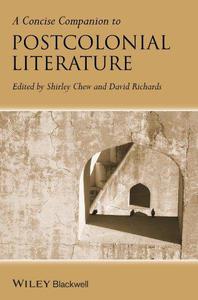 A Concise Companion to Postcolonial Literature By David Bradshaw(eds.) 2010 | 252 Pages | ISBN: 1405135034 | PDF | 4 MB Taking an innovative and multi-disciplinary approach to literature from 1947 to the present day, this Concise Companion is an indispensable guide for anyone seeking an authoritative understanding of the intellectual contexts of Postcolonial literature and culture. An indispensable guide for anyone seeking an authoritative understanding of the intellectual contexts of Postcolonialism, bringing together 10 original essays from leading international scholars including C. L. Innes and Susan Bassnett Explains the ideas and practises that emerged from the dismantling of European empires Explores the ways in which these ideas and practices influenced the period's keynote concerns, such as race, culture, and identity; literary and cultural translations; and the politics of resistance Chapters cover the fields of identity studies, orality and literacy, nationalisms, feminism, anthropology and cultural criticism, the politics of rewriting, new geographies, publishing and marketing, translation studies. Features a useful Chronology of the period, thorough general bibliography, and guides to further reading Content: Chapter 1 Framing Identities (pages 9-28): David RichardsChapter 2 Orality and Literacy (pages 29-55): G. N. Devy and Duncan BrownChapter 3 The Politics of Rewriting (pages 56-77): C. L. InnesChapter 4 Postcolonial Translations (pages 78-96): Susan BassnettChapter 5 Nation and Nationalisms (pages 97-119): John McLeodChapter 6 Feminism and Womanism (pages 120-140): Nana Wilson?TagoeChapter 7 Cartographies and Visualization (pages 141-161): David HowardChapter 8 Marginality: Representations of Subalternity, Aboriginality and Race (pages 162-181): Stephen MortonChapter 9 Anthropology and Postcolonialism (pages 182-203): Will ReaChapter 10 Publishing Histories (pages 204-228): Gail Low 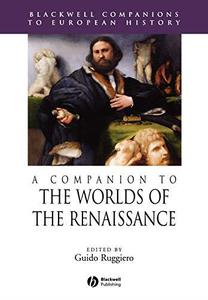 A Companion to the Worlds of the Renaissance By Guido Ruggiero (ed.) 2006 | 566 Pages | ISBN: 1405157836 | PDF | 24 MB This volume brings together some of the most exciting renaissance scholars to suggest new ways of thinking about the period and to set a new series of agendas for Renaissance scholarship.Overturns the idea that it was a period of European cultural triumph and highlights the negative as well as the positive. Looks at the Renaissance from a world, as opposed to just European, perspective. Views the Renaissance from perspectives other than just the cultural elite. Gender, sex, violence, and cultural history are integrated into the analysis.Content: Chapter 1 The Italian Renaissance (pages 21-38): Gene BruckerChapter 2 The European Renaissance (pages 39-54): Randolph StarnChapter 3 The Renaissance and the Middle East (pages 55-69): Linda T. DarlingChapter 4 The Renaissance World from the West (pages 70-87): Matthew RestallChapter 5 The Historical Geography of the Renaissance (pages 88-103): Peter BurkeChapter 6 Governments and Bureaucracies (pages 104-123): Edward MuirChapter 7 Honor, Law, and Custom in Renaissance Europe (pages 124-138): James R. FarrChapter 8 Violence and its Control in the Late Renaissance: An Italian Model (pages 139-155): Gregory HanlonChapter 9 Manners, Courts, and Civility (pages 156-171): Robert MuchembledChapter 10 Family and Clan in the Renaissance World (pages 172-187): Joanne M. FerraroChapter 11 Gender (pages 188-207): Elissa B. WeaverChapter 12 The Myth of Renaissance Individualism (pages 208-224): John Jeffries MartinChapter 13 Social Hierarchies: The Upper Classes (pages 225-242): Matthew VesterChapter 14 Social Hierarchies: The Lower Classes (pages 243-258): James S. AmelangChapter 15 Tools for the Development of the European Economy (pages 259-278): Karl AppuhnChapter 16 Economic Encounters and the First Stages of a World Economy (pages 279-295): John A. MarinoChapter 17 The Subcultures of the Renaissance World (pages 297-315): David C. GentilcoreChapter 18 High Culture (pages 316-332): Ingrid D. RowlandChapter 19 Religious Cultures (pages 333-348): R. Po?Chia HsiaChapter 20 Art (pages 334-365): Loren PartridgeChapter 21 Literature (pages 366-383): James Grantham TurnerChapter 22 Political Ideas (pages 384-402): John M. NajemyChapter 23 The Scientific Renaissance (pages 403-424): William EamonChapter 24 Plague, Disease, and Hunger (pages 425-443): Mary LindemannChapter 25 Renaissance Bogeymen: The Necessary Monsters of the Age (pages 444-459): Linda WoodbridgeChapter 26 Violence and Warfare in the Renaissance World (pages 460-474): Thomas F. ArnoldChapter 27 Witchcraft and Magic (pages 475-490): Guido RuggieroChapter 28 The Illicit Worlds of the Renaissance (pages 491-505): Ian Frederick Moulton 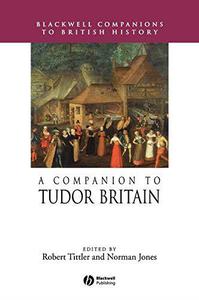 A Companion to Tudor Britain By 2004 | 598 Pages | ISBN: 063123618X | PDF | 5 MB A Companion to Tudor Britain provides an authoritative overview of historical debates about this period, focusing on the whole British Isles. An authoritative overview of scholarly debates about Tudor Britain Focuses on the whole British Isles, exploring what was common and what was distinct to its four constituent elements Emphasises big cultural, social, intellectual, religious and economic themes Describes differing political and personal experiences of the time Discusses unusual subjects, such as the sense of the past amongst British constituent identities, the relationship of cultural forms to social and political issues, and the role of scientific inquiry Bibliographies point readers to further sources of information Content: Chapter 1 The Establishment of the Tudor Dynasty (pages 13-28): David GrummittChapter 2 The Rise of the Tudor State (pages 29-43): Joseph S. BlockChapter 3 Elizabethan Government and Politics (pages 44-60): David DeanChapter 4 The Court (pages 61-76): Retha WarnickeChapter 5 Law (pages 77-97): DeLloyd J. GuthChapter 6 County Government in England (pages 98-115): Steve HindleChapter 7 Town and City Government (pages 116-132): Catherine F. PattersonChapter 8 Centre and Periphery in the Tudor State (pages 133-150): Steven G. EllisChapter 9 Politics and Government of Scotland (pages 151-166): Jenny WormaldChapter 10 Anglo?Scottish Relations: Security and Succession (pages 167-181): Jane E. A. DawsonChapter 11 Britain and the Wider World (pages 182-200): David PotterChapter 12 Traditional Religion (pages 207-220): Ben R. McReeChapter 13 The Dissolutions and their Aftermath (pages 221-237): Peter CunichChapter 14 Religious Settlements (pages 238-253): Norman JonesChapter 15 Catholics and Recusants (pages 254-270): William SheilsChapter 16 The Protestant Opposition to Elizabethan Religious Reform (pages 271-288): Peter Iver KaufmanChapter 17 The Scottish Reformation (pages 289-305): Michael GrahamChapter 18 Rural Economy and Society (pages 311-329): R. W. HoyleChapter 19 The Urban Economy (pages 330-346): Alan DyerChapter 20 Metropolitan London (pages 347-362): Joseph P. WardChapter 21 Society and Social Relations in British Provincial Towns (pages 360-380): Robert TittlerChapter 22 Women in the British Isles in the Sixteenth Century (pages 381-399): Anne LaurenceChapter 23 Senses of the Past in Tudor Britain (pages 403-429): Daniel WoolfChapter 24 Tudor Drama, Theatre and Society (pages 430-447): Alexandra F. JohnstonChapter 25 Portraiture, Politics and Society (pages 448-469): Robert TittlerChapter 26 Architecture, Politics and Society (pages 470-491): Malcolm AirsChapter 27 Music, Politics and Society (pages 492-508): John MilsomChapter 28 Science and Technology (pages 509-525): Lesley B. Cormack 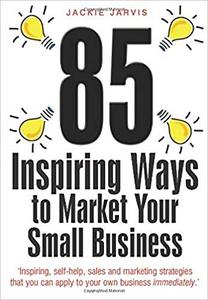 85 Inspiring Ways to Market Your Small Business (2nd edition) by Jackie Jarvis English | 2009 | ISBN: 1845283961 | 256 Pages | PDF | 2.3 MB This book is for the many people who run their own small to medium-sized business and who want to make it grow. 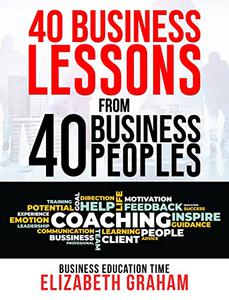 40 LESSONS FROM 40 BUSINESS LEADERS by Elizabeth Graham English | 2022 | ISBN: N/A | ASIN: B09X9KCJ1C | 430 pages | EPUB | 0.29 Mb Want to know what it takes to become a leader that inspires, succeeds, and allows others to thrive? Learn from the people who've seen, done, and been through it all! 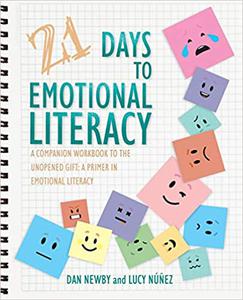 Dan Newby, Lucy Nunez, "21 Days to Emotional Literacy: A Companion Workbook to The Unopened Gift" English | 2018 | ISBN: 1732450900 | 62 pages | EPUB | 0.19 MB "What emotion is present for you at this moment?" A simple question, but one that many of us cannot answer with ease. 21 Days to Emotional Literacy is a simple and logical approach to growing your competency in an area that traditional education has overlooked. The learning you experience will allow you to access your emotions as a tool in much the same way the ability to read and write does in language. This workbook can be used alone or in conjunction with The Unopened Gift: A Primer in Emotional Literacy by the same authors. 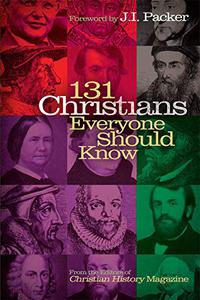 Christian History Magazine Editorial Staff, Mark Galli, Ted Olsen, "131 Christians Everyone Should Know" English | 2000 | pages: 320 | ISBN: 080549040X | EPUB | 14,6 mb This book offers a succinct yet thorough introduction to 131 of the most intriguing, courageous, inspiring Christians who ever lived. It tells how they lived, what they believed, and how their faith affected the course of world history. Includes a timeline with a historical context for each individual, key quotes from or about each personality, and more than 60 photos. |